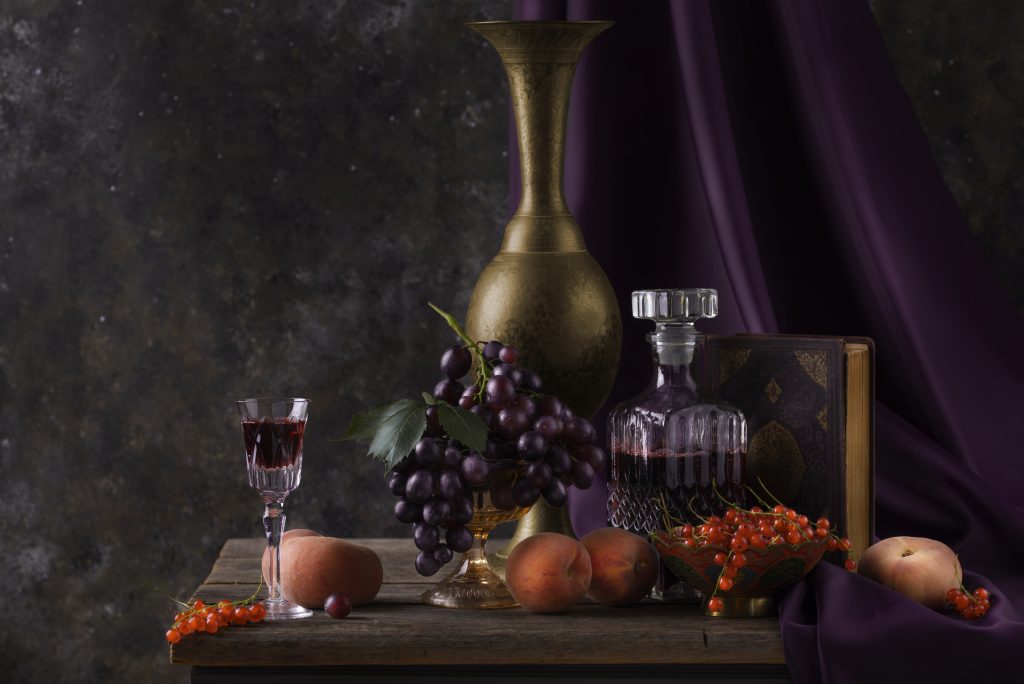Are you ready to indulge in an extraordinary wine experience in Israel? Get ready to savor the rich flavors and aromas that will transport your taste buds to a world of delight. Israel, with its ancient vineyards and diverse terroirs, has become a captivating destination for wine enthusiasts. The country’s winemakers have crafted exceptional wines that reflect the unique character of the land. From elegant reds to crisp whites, there is a wide array of exquisite wines waiting to be discovered. So, grab a glass, take a sip, and let the flavors of Israel’s best wines take you on a remarkable journey of taste and discovery.
Contents
- Historical Roots and Grape Varieties
- Diverse Winemakers and Their Backgrounds
- Climatic Factors and Vineyard Altitudes
- The Fifth Wave of Israeli Wine
- Misunderstandings About Israeli Wines
- Kosher and Non-Mevushal Wines
- Recommended Israeli Wines
- Progress of Israeli Winemakers
- Wine Production and Non-Political Perspective
- History and Evolution of Israeli Wine
Historical Roots and Grape Varieties
Explore the historical roots and diverse grape varieties that have shaped the Israeli wine industry. The Israeli wine industry has a rich history that dates back thousands of years. It has evolved significantly over the past few decades, gaining international respect and recognition. One of the key factors contributing to the success of Israeli wines is the grape varietal experimentation. Winemakers in Israel have been exploring a more varied range of grape varieties, allowing them to express the unique characteristics of their regions and vineyards.
The impact of terroir on wine quality cannot be overstated. Israel’s diverse climate and topography, ranging from the Mediterranean coastline to mountainous regions, provide ideal conditions for growing grapes. This, in turn, influences the quality and flavor profiles of the wines produced. Additionally, the historical significance of the Carignan grape cannot be ignored. It was the dominant grape variety in Israel until the boutique winery boom in the 1990s.
Furthermore, the influence of international winemakers in Israel has played a crucial role in shaping the industry. Winemakers from around the world have brought their expertise and techniques to Israel, contributing to the growth and development of the industry. Finally, the rise of dry white wines in Israel is another significant trend. Israeli winemakers have been producing exceptional dry white wines, showcasing the potential of the region for this style. Overall, the historical roots and diverse grape varieties have laid the foundation for the Israeli wine industry and continue to shape its success today.
Diverse Winemakers and Their Backgrounds
Israeli winemakers have diverse backgrounds that contribute to the innovation and creativity found in the country’s wine industry. With their cultural backgrounds and knowledge of winemaking traditions, these winemakers bring a unique perspective to the production of Israeli wines. They have embraced the Mediterranean climate and have experimented with a variety of grape varieties, including indigenous ones like Marawi, to create wines that truly express the land they are grown in.
In addition to their deep understanding of traditional winemaking techniques, Israeli winemakers have also incorporated innovative techniques into their practices. For example, Eran Pick, inspired by German riesling wines, studied winemaking in California, bringing a new perspective to the Israeli wine scene. Assaf Paz, the first Israeli winemaker to graduate from the University of Bordeaux, focuses on Mediterranean grape varieties, adding a touch of French influence to his wines. Zeev Dunie, a former studio technician and documentary filmmaker, produces Chateauneuf du Pape-inspired wines, combining tradition with a modern twist. And Doron Rav Hon’s Sphera winery specializes in dry whites in a warm Mediterranean climate, showcasing the versatility and potential of Israeli wines.
The diverse backgrounds of these winemakers, along with their knowledge of winemaking traditions and willingness to embrace innovative techniques, have played a significant role in the progress of the Israeli wine industry. Through their passion and dedication, they have helped put Israeli wines on the map, making them a must-try for wine enthusiasts around the world.
Climatic Factors and Vineyard Altitudes
Discover the climatic factors and vineyard altitudes that contribute to the unique characteristics of Israeli wines. The diverse terroir of Israel’s wine regions is shaped by a combination of climatic influences and varying altitudes. Here are some key factors to consider:
- Altitude impact: Israel’s best vineyards are located at altitudes ranging from 250 to 1,200 meters above sea level. The higher elevation vineyards experience cooler temperatures, which can result in slower ripening and the development of more complex flavors in the grapes.
- Climatic influences: Israel’s Mediterranean climate, characterized by hot, dry summers and mild winters, plays a significant role in shaping the terroir characteristics of the vineyards. The regions experience a lower number of hot hours compared to other wine-growing regions, allowing for a longer growing season and better preservation of acidity in the grapes.
- Vineyard microclimates: Within each wine region, there are microclimates that can vary significantly. Factors such as proximity to the sea, exposure to winds, and variations in soil composition contribute to the unique characteristics of each vineyard, resulting in a wide range of flavor profiles in Israeli wines.
- Grape variety suitability: The choice of grape varieties planted in Israeli vineyards is influenced by both climatic conditions and altitude. Varieties such as Cabernet Sauvignon, Chardonnay, Merlot, and Syrah have proven to be well-suited to the Israeli terroir, producing wines with high alcohol content, impressive concentration, and lush textures.
The combination of altitude, climatic influences, vineyard microclimates, and grape variety suitability all contribute to the distinctiveness and quality of Israeli wines. By understanding these factors, wine enthusiasts can appreciate the unique characteristics that make Israeli wines truly special.
The Fifth Wave of Israeli Wine
Indulge in the unique flavors and expressions of Israeli wines with the fifth wave of wine production. This wave is characterized by producers who are focused on expressing the individual regions and vineyards of Israel. They are experimenting with a more varied range of grape varieties, including the indigenous ones like Marawi, which is now finding its voice in the Israeli wine scene. The fifth wave also sees a shift in the way Cabernet Sauvignon and Merlot are being grown and vinified, with winemakers striving to express the unique characteristics of the land they are grown in.
Israeli wine regions, such as Galilee, Judean Hills, and Shomron, are playing a significant role in shaping this new wave. These regions have diverse microclimates and soil compositions, which contribute to the complexity and diversity of Israeli wines. Moreover, Israeli winemakers are incorporating innovative techniques in their winemaking process, such as aging in amphorae and using natural yeasts, to enhance the expression of the grapes and terroir.
The fifth wave of Israeli wine is not only making waves domestically but also gaining recognition internationally. Israeli wine exports have been on the rise, and wine tourism in Israel is flourishing as more and more visitors are attracted to the unique and exceptional wines that the country has to offer.
Misunderstandings About Israeli Wines
Don’t let misconceptions cloud your judgment when it comes to Israeli wines. There are several common misunderstandings about Israeli wines that can hinder your appreciation of their true quality and diversity. Let’s debunk these misconceptions:
- Misconception 1: Kosher production means sweet wines – Many people mistakenly associate kosher wines with cloyingly sweet varieties like Manischewitz. However, kosher wine production simply refers to adherence to specific Jewish dietary laws, and it does not determine the sweetness of the wine.
- Misconception 2: Kosher wine production is not organic – Contrary to popular belief, kosher wine production often aligns with organic bottlings. The strict rules and regulations surrounding kosher certification often require producers to follow organic practices, ensuring the use of natural and sustainable methods in the vineyards and wineries.
- Misconception 3: Mevushal process ruins the quality of wine – Mevushal wines undergo a flash pasteurization process to meet the requirements of certain Orthodox Jewish consumers. However, this process does not necessarily affect the overall quality of the wine. Many exceptional Israeli wines are both kosher and non-Mevushal.
- Misconception 4: Israeli wines are only sweet or kosher – Israeli wines offer a wide range of styles and flavors beyond sweet or kosher varieties. From elegant and complex reds to crisp and refreshing whites, Israeli winemakers have been pushing boundaries and producing world-class wines that can rival those from renowned wine regions around the globe.
Kosher and Non-Mevushal Wines
When it comes to exploring Israeli wines, it’s important to understand the distinction between kosher and non-Mevushal wines. There are often misconceptions surrounding kosher wines, with some people mistakenly associating them with cloyingly sweet wines like Manischewitz. However, kosher wine production is similar to organic bottlings and does not necessarily mean that the wine is mevushal, or flash pasteurized for certain Orthodox Jews. In fact, nearly 100% of Israeli wine production is kosher, but not all wines are mevushal.
To help you navigate the world of Israeli wines, here are some non-Mevushal wine recommendations that showcase the quality and diversity of Israeli wine:
| Wine | Region | Price |
|---|---|---|
| 2016 Dalton Alma Scarlet Galilee | Galilee | $26 |
| 2018 Five Stones Vineyards D vs G Dry White Wine Judean Hills | Judean Hills | $30 |
| 2016 Gvaot Masada Dry Red Wine Shomron | Shomron | $75 |
| 2016 Jezreel Valley Winery Argaman Jezreel Valley | Jezreel Valley | $60 |
These wines are all kosher but not mevushal, and they offer a range of flavors and styles that highlight the excellence of Israeli winemaking. From the plush and giving Dalton Alma Scarlet to the beautiful floral aromas of Five Stones Vineyards D vs G Dry White Wine, each of these wines represents the unique terroir and craftsmanship of Israeli winemakers. So, the next time you’re exploring Israeli wines, don’t be afraid to venture beyond the misconceptions and discover the incredible quality of non-Mevushal wines.
Recommended Israeli Wines
Discover a selection of outstanding Israeli wines that will captivate your taste buds and showcase the country’s thriving wine industry. Here are some recommended Israeli wines that highlight the diversity and quality of the region:
- 2016 Dalton Alma Scarlet Galilee ($26): This wine from the Galilee region is a plush and giving red blend with rich aromas of currants and crushed cherries.
- 2018 Five Stones Vineyards D vs G Dry White Wine Judean Hills ($30): From the Judean Hills, this white wine offers beautiful floral aromas and a concentrated, spicy flavor profile.
- 2016 Gvaot Masada Dry Red Wine Shomron ($75): A Bordeaux-style blend from the Shomron region, this wine is known for its deep notes of brambly berries and currants.
- 2016 Jezreel Valley Winery Argaman Jezreel Valley ($60): This red wine from the Jezreel Valley impresses with its exuberant flavors of blueberries and its bright, balsamic notes.
These wines represent some of the emerging grape varieties and winemaking techniques in Israel. The Israeli wine industry is experiencing a fifth wave of innovation, with producers expressing individual regions and vineyards. The experimentation with a wider range of grape varieties, including indigenous ones like Marawi, is contributing to the exciting trends in Israeli winemaking. When it comes to food pairings, the Scarlet Galilee is a perfect match for short ribs in Port-wine sauce, while the D vs G Dry White Wine complements seafood dishes. The Masada Dry Red Wine pairs well with grilled meats, and the Argaman Jezreel Valley is ideal with roasted vegetables. Explore these recommended Israeli wines and immerse yourself in the vibrant wine culture of the region.
Progress of Israeli Winemakers
Israeli winemakers have made significant progress since 2014, reflecting the geographical diversity and cultural melting pot of the country. The impact of climate on wine production cannot be overlooked. Israel’s best vineyards are located at altitudes of 250 to 1,200 meters above sea level, with average temperatures 1.5 to 7 degrees Celsius cooler than Tel Aviv. This allows for optimal growing conditions and the development of unique flavors in the grapes. Historical grape varieties also play a role in the evolution of Israeli wine. Carignan was once the dominant grape variety, but the boutique winery boom in the 1990s led to experimentation with a more varied range of grapes. Cabernet Sauvignon is now the most widely planted red wine grape in Israel. Additionally, the diverse backgrounds of Israeli winemakers contribute to the industry’s progress. From former helicopter pilots to documentary filmmakers, these winemakers bring their unique perspectives and innovative approaches to winemaking. Overall, the evolution of the Israeli wine industry is a testament to the passion and dedication of its winemakers, who continue to push boundaries and create exceptional wines.
Wine Production and Non-Political Perspective
As you delve into the world of Israeli wines, it is important to appreciate the wine production process and approach it from a non-political perspective. Israeli winemakers have made significant progress in recent years, with emerging winemaking techniques and a focus on expressing the unique characteristics of their regions and vineyards. They have embraced organic and sustainable practices, ensuring that their wines are not only delicious but also environmentally friendly. This commitment to quality has gained international recognition, as Israeli wines are now being celebrated on the global stage.
When visiting Israeli wineries, you can also experience wine tourism at its finest. Many wineries offer guided tours and tastings, allowing you to immerse yourself in the rich history and culture of winemaking in the region. And let’s not forget about the joy of wine and food pairings. Israeli cuisine is diverse and flavorful, and there are plenty of opportunities to explore the perfect wine to complement your meal.
History and Evolution of Israeli Wine
Delve into the rich history and evolution of Israeli wine, tracing its roots back thousands of years. The influence of ancient winemaking techniques can be seen in the development of this thriving industry. Over the past few decades, Israel has emerged as one of the most exciting wine-producing countries in the world, thanks to the impact of international recognition and the preservation of indigenous grape varieties.
Israel’s winemaking regions are constantly evolving, with emerging areas gaining prominence. The Mediterranean coastline and varied topography provide the ideal conditions for grape cultivation, resulting in high-quality wines. Israeli wine was once known for its ripe, over-oaked reds, but now there is a shift towards expressing individual regions and vineyards. Winemakers are experimenting with a more diverse range of grape varieties, including indigenous ones like Marawi, giving voice to the unique terroir of Israel.
As consumer preferences evolve, Israeli winemakers are adapting to meet the demands of the market. The international recognition of Israeli wines has led to a greater focus on producing wines that showcase the characteristics of the land. Cabernet Sauvignon and Merlot, two of the most widely planted red wine grapes in Israel, now express the distinctiveness of the regions they are grown in.
The history and evolution of Israeli wine reflect a dynamic and evolving industry. From ancient winemaking techniques to emerging winemaking regions and the impact of international recognition, Israeli wine continues to captivate wine enthusiasts around the world.




